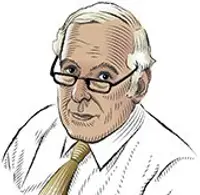The Witkoff Group is planning a 97-unit residential condominium building at 150 Charles Street in the Far West Village.
It has commissioned Cook + Fox to design a 12-story addition to the existing three-story storage facility at the site and the building will step down toward the Hudson River from the east.
The site was one of two large properties that were not included in the city's 2005 rezoning of the area. The other is the former Superior Ink plant that is being redeveloped by The Related Companies and designed by Robert A. M. Stern.
The Cook + Fox design retains the masonry facades of the former storage facility and its addition is masonry and glass. The building, which is to the south of the three mid-rise glass towers facing the Hudson River designed by Richard Meier, is expected to seek a gold LEED rating from the U. S. Green Building Council. The project will include 10 four-story townhouse units.
According to the Cook + Fox website, "portions of the warehouse will be carved out to make light and air available to the residences and to create green, open space. Planted areas, including both private and communal terraces on multiple levels, will account for more than 50 percent of the site area. The tower will be set back from the street by 30 feet above the existing street well to increase light and air to the street. The project is expected to use "significantly less energy than a typical building and the residential lofts will incorporate highly filtered fresh air" and non-toxic materials....Rainwater captured on-site will be used for landscaping, making use of the natural environment of 1.4 million gallons of water that fall on the site every year."
"The historic brick architecture of the West Village will be echoed in the terra cotta cladding of the new building," the website also proclaimed.
The building occupies the block bounded by West, Washington, Charles and West 10th Streets and the developer agreed not to build to the maximum size permitted under zoning.
It has commissioned Cook + Fox to design a 12-story addition to the existing three-story storage facility at the site and the building will step down toward the Hudson River from the east.
The site was one of two large properties that were not included in the city's 2005 rezoning of the area. The other is the former Superior Ink plant that is being redeveloped by The Related Companies and designed by Robert A. M. Stern.
The Cook + Fox design retains the masonry facades of the former storage facility and its addition is masonry and glass. The building, which is to the south of the three mid-rise glass towers facing the Hudson River designed by Richard Meier, is expected to seek a gold LEED rating from the U. S. Green Building Council. The project will include 10 four-story townhouse units.
According to the Cook + Fox website, "portions of the warehouse will be carved out to make light and air available to the residences and to create green, open space. Planted areas, including both private and communal terraces on multiple levels, will account for more than 50 percent of the site area. The tower will be set back from the street by 30 feet above the existing street well to increase light and air to the street. The project is expected to use "significantly less energy than a typical building and the residential lofts will incorporate highly filtered fresh air" and non-toxic materials....Rainwater captured on-site will be used for landscaping, making use of the natural environment of 1.4 million gallons of water that fall on the site every year."
"The historic brick architecture of the West Village will be echoed in the terra cotta cladding of the new building," the website also proclaimed.
The building occupies the block bounded by West, Washington, Charles and West 10th Streets and the developer agreed not to build to the maximum size permitted under zoning.

Architecture Critic
Carter Horsley
Since 1997, Carter B. Horsley has been the editorial director of CityRealty. He began his journalistic career at The New York Times in 1961 where he spent 26 years as a reporter specializing in real estate & architectural news. In 1987, he became the architecture critic and real estate editor of The New York Post.

 6sqft delivers the latest on real estate, architecture, and design, straight from New York City.
6sqft delivers the latest on real estate, architecture, and design, straight from New York City.
